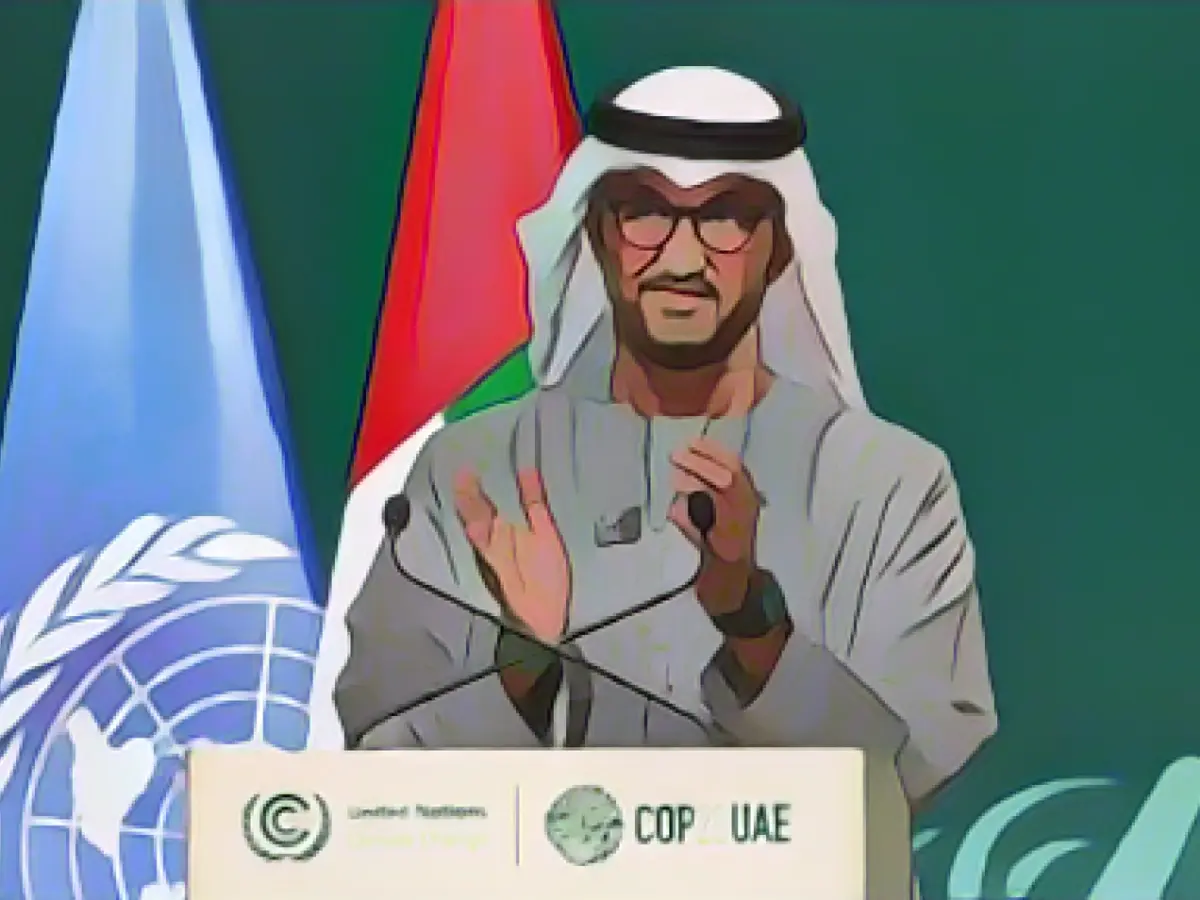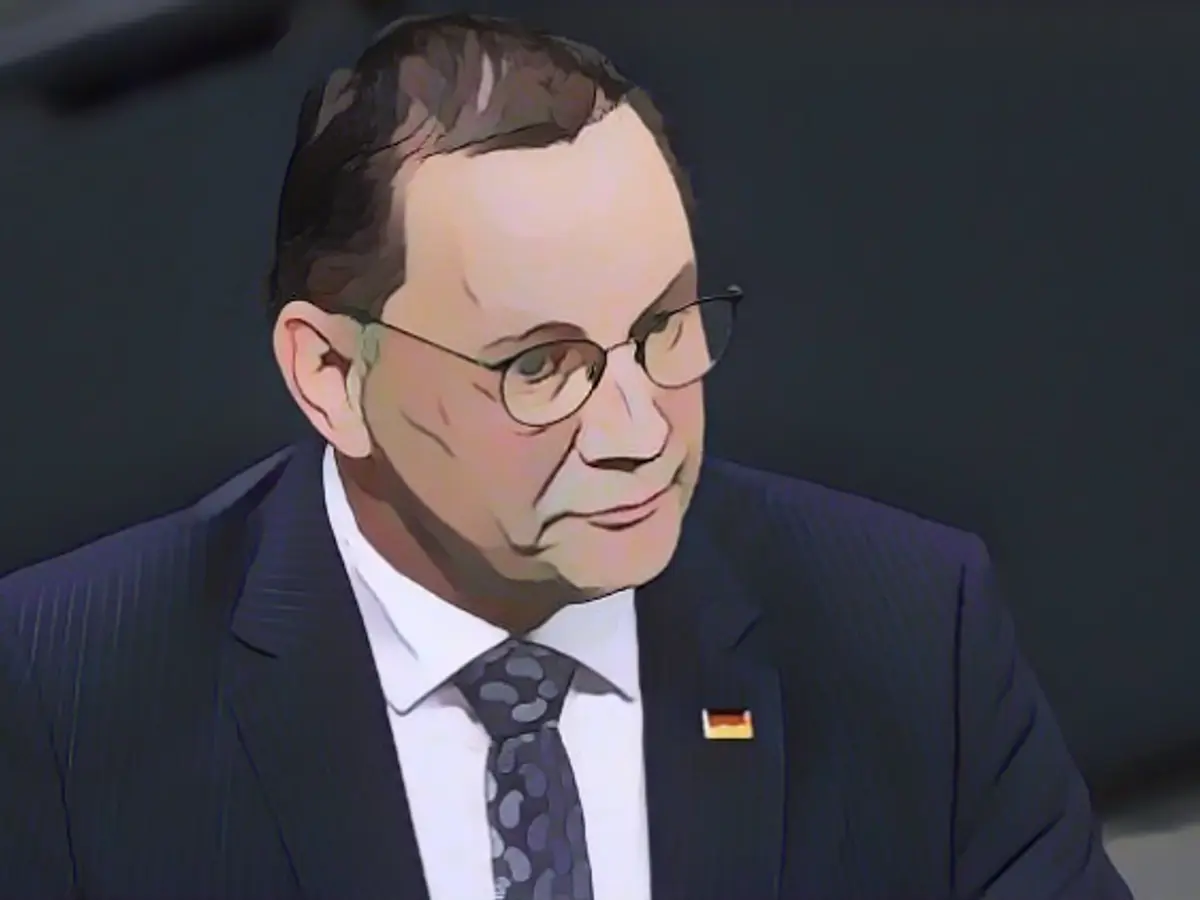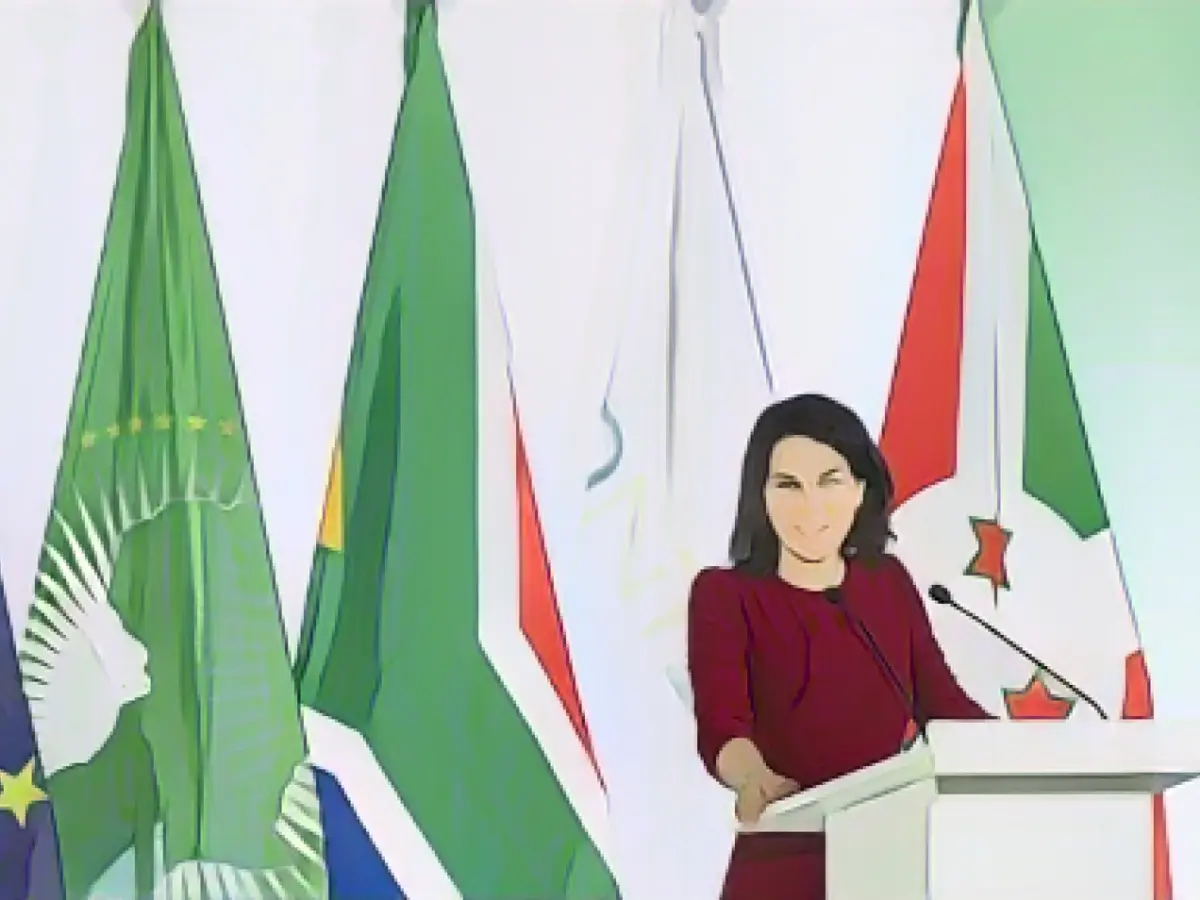Transforming Tides at Dubai's UN Climate Summit: A Decision to Embrace Renewable Energy
The UN Climate Summit in Dubai stirred significant ripples within the world of environmental policy, with a resolution cracking open the door for a transformation in energy production. After days of debates and negotiations, the conference culminated in a joint resolution led by its president, Sultan Ahmed al-Jaber, that left delegates applauding.
The resolution signaled a notable departure from previous UN climate conferences, focusing explicitly on the phase-out of fossil fuels, including oil, gas, and coal. While the European Union (EU) wished to anchor a worldwide withdrawal of all fossil fuels, staunch opposition from oil-rich states such as Saudi Arabia necessitated compromise.
However, observed al-Jaber, "We have the foundation for transformative change." No objections surfaced to the resolution's central text as the delegates embraced this groundbreaking step. The process that led to this decision extended beyond the originally scheduled plenary session, requiring a second evening of deliberations before a revised resolution text was presented.
Germany voiced its approval of the newly forged compromise. Minister of the Environment Steffi Lemke viewed it as a solid foundation for future action, while Foreign Minister Annalena Baerbock and Economics Minister Robert Habeck celebrated the ventured path toward a climate-friendly future.
Negotiators from small island nations, acutely aware of climate change's devastating impact on their ecosystems, reacted with concern. Anne Rasmussen, Samoa's chief negotiator, applauded the "incremental progress" yet called for a quantum leap toward promoting change.
John Silk, the Marshall Islands' representative, likened the agreement to a "leaky canoe," but admitted that their situation left little option for hesitation. Meanwhile, Saudi Arabia welcomed the compromise on behalf of the Arab group, praising the shift to a transition process.
Other nations, such as China and Brazil, challenged industrialized countries to pioneer the energy transition in light of their historical greenhouse gas emissions. Russia, one of the world's foremost fossil fuel providers, weighed in on the compromise but emphasized the importance of avoiding a chaotic phaseout.
The Dubai conference resolution hinged on boosting global renewable energy capacity to three times its present levels by 2030, while advancing energy efficiency by an unprecedented rate within the same timeframe. In addition, the resolution acknowledged "transitional energies" such as natural gas and carbon capture and storage strategies.
This last point drew criticism from environmental organizations, who claimed it served as a backdoor maneuver to slow down the energy transition. In response to the resolution, the Organization of the Petroleum Exporting Countries (OPEC) declared that global oil demand is projected to reach an all-time high of 104.36 million barrels per day in the subsequent year.
Climate Change Secretary Simon Stiell urged the world community to implement the Dubai decision, while the UN Secretary-General António Guterres echoed Stiell's call, emphasizing the urgent need for nations to phase out reliance on fossil fuels.
Environmental and development organizations responded with a mix of praise and calls for stricter enforcement. Greenpeace board member Martin Kaiser acknowledged that the resolution marked a critical juncture in the transition away from fossil fuels, but proposed that it could have contained more stringent stipulations.
Mohamed Adow, a representative from the think tank Power Shift Africa, applauded the decision for daring to name the unspoken elephant in the room: fossil fuels. "This genie will never return to its bottle," Adow asserted.
In the aftermath of COP28, nations worldwide must collaborate transparently to embrace renewable energy, ushering in a new era of environmental responsibility and sustainability.
Sources:
Enrichment Data:
The 2023 UN Climate Change Conference (COP28) in Dubai resulted in a resolution to usher in a transformation away from fossil fuels in energy systems. Among the key points in this resolution are:
- Transitioning Away from Fossil Fuels: The conference underscored the necessity of transitioning from fossil fuels in an equitable, orderly, and just manner to limit global warming, aligning with the objectives of the Paris Agreement and SDGs.
- Renewable Energy Capacity: The resolution emphasized the need to amplify renewable energy capacity worldwide by three times by 2030 to secure deep, rapid, and sustained greenhouse gas emission reductions.
- Energy Efficiency Improvements: The UN Climate Summit called for doubling the global average annual rate of energy efficiency improvements by 2030.
- Phase-Down of Coal Power: The conference advocated speeding up efforts to phase down unabated coal power, given its significant role in greenhouse gas emissions.
- Net Zero Emission Energy Systems: Delegates emphasized the importance of accelerating the transition to net zero emissions energy systems to provide zero and low carbon fuels before mid-century.
- Technological Advancements: The resolution highlighted the significance of proactively fostering innovations, including renewables, nuclear, CO2 abatement and removal technologies, and low-carbon hydrogen production to combat climate change.
These components underscore the far-reaching implications of the decision to transition away from fossil fuels, requiring collaboration, unity, and coordinated action from nations worldwide.








